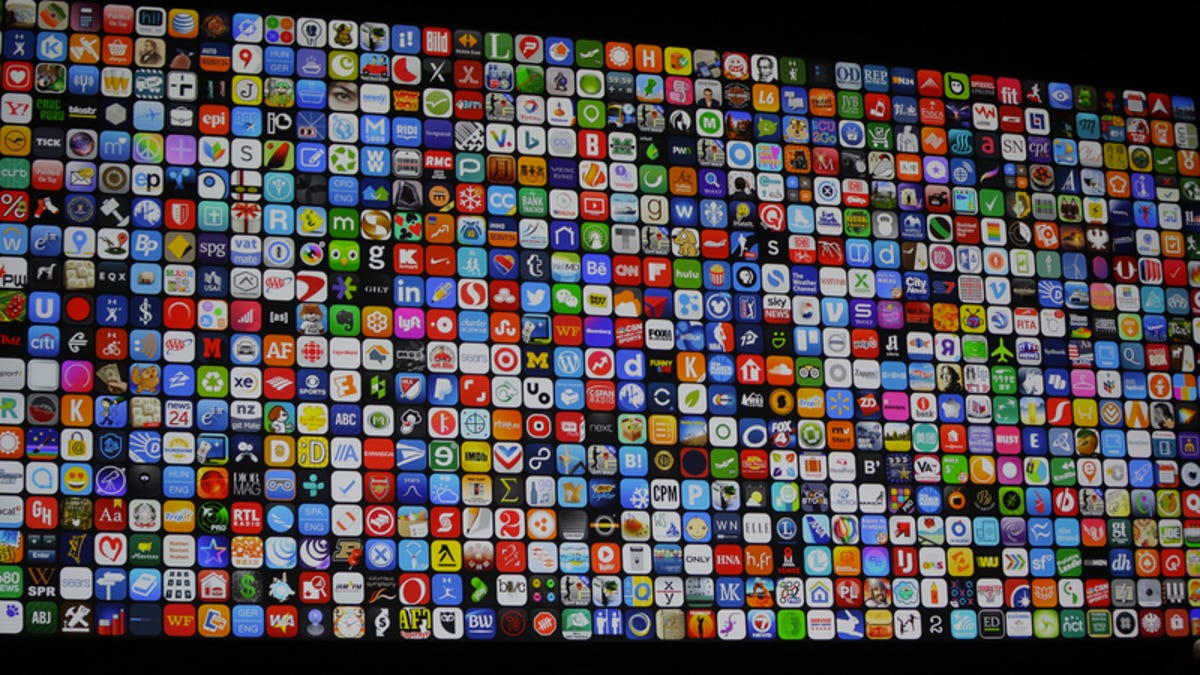Apple to app makers: Come on in! OK, now stop right there
With iOS 10, third-party apps will work with iMessage, Maps, Siri and even the phone to make calls. But that openness has some limits.

Apple is embracing its developers like never before.
The Cupertino, California, company unveiled on Monday new ways for developers to tap into some of its key mobile apps -- including Maps, Messages, Siri and even the Phone function -- starting with the upcoming iOS 10 mobile operating system. For each of those Apple apps, third-party developers can integrate the technology with their own apps, making their services do even more.
You'll be able to call a Lyft car by speaking the command out loud to Siri. Third-party phone services like WhatsApp can become the default way to call certain friends. You can open an app directly from Apple's Messages, letting you alert a friend to an order you've placed. And inside the Apple Maps app, you can look up sushi restaurants in the area, make a reservation with OpenTable, book an Uber and pay for the ride using Apple Pay.
"Apple has opened up the 'crown jewels' of their software," Moor Insights & Strategy analyst Patrick Moorhead said. "That's huge."
The move, announced by Apple at its WWDC developers conference in San Francisco, marks a reversal of sorts for the company, which has notoriously kept a tight rein on its most critical apps. Rival Google, with its Android software, has always been viewed as the open one. Apple's willingness to change underscores its need to tap deeper into the developer community to ensure the growing usefulness of its iPhone at a time when Google and Amazon are pouring resources into artificial intelligence, which promises to make devices smarter than ever.
Apple is leaning on what turned the iPhone into a phenomenon in the first place: its App Store. When the gadget launched in 2008, that store had only 500 apps. Today, there are more than 2 million apps available that together have been downloaded 130 billion times, Apple CEO Tim Cook said Monday. Offering all those apps is what helped the iPhone become a popular device, while lack of developer support contributed to companies like BlackBerry and Microsoft failing in the smartphone market.
But even Apple is vulnerable now. In April, it reported its first-ever drop in iPhone sales, an indication that people just aren't as excited about phones anymore. There's also app fatigue. Most smartphone owners spend the bulk of time with only three apps, according to a study by ComScore, and they're not looking for new downloads (a 2014 ComScore report found that two-thirds of smartphone users hadn't downloaded a single app in a month.). A report from Nomura found the top 15 app makers saw downloads tumble an average of 20 percent in May in the US, indicating that not even popular apps like Facebook are immune to the app slowdown.
The move to open its services to developers follows similar steps Apple has taken over the past couple of years. Last year, for instance, it made its Swift programming language open-source, and it has vowed to bring Apple Music to the Google Play Store for rival Android devices. The hope is that by opening its services to third parties, Apple will enable you to do more with those apps -- and eventually spend more time and money on them.
"Anytime you can eliminate a step, like having to exit out of an app, makes it easier for the diner, which is something we're always excited about," said Catherine Porter, OpenTable's senior vice president of strategy and business development.
Hold your horses
Before you start thinking that Apple is completely opening up, consider what the company is actually letting developers do. Not every app will work with Siri or Maps. Only apps for audio/video calling, messaging, payments, photo searches, workouts and ride booking will work with Siri, and Maps appears to support only ride booking and restaurant reservations.
"They are more open, but I would stress that they are open in a controlled way," Creative Strategies analyst Carolina Milanesi said.
The limits mean there won't be confusion for Siri about things like which app to use to play a song (it will just continue to default to Apple Music), and Apple can make sure the process is still smooth. And who knows what else Apple could open up in the future? After all, it's got to keep developers happy.
"Successful developers translates to having the best apps on our platform for users," Cook said on Monday. "You are part of everything that we do and everything that we will do going forward."
CNET's Erin Carson contributed to this report.

